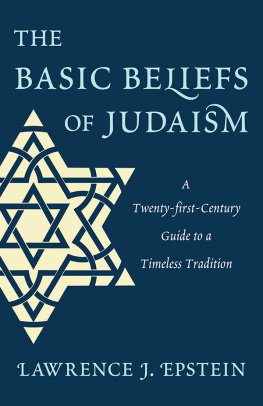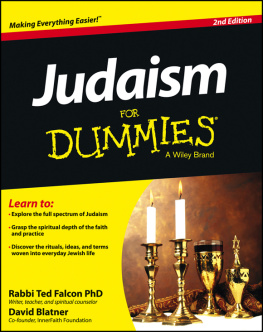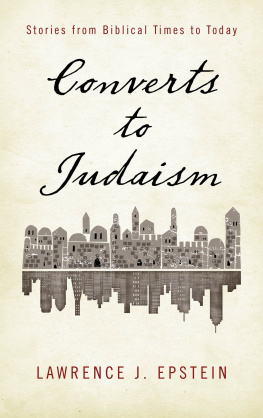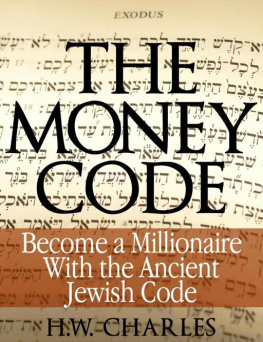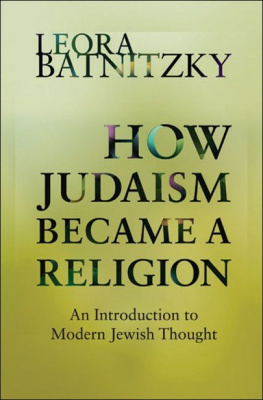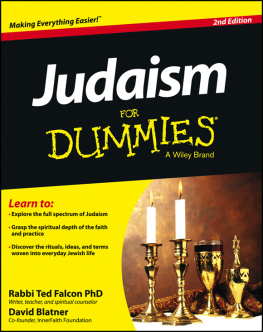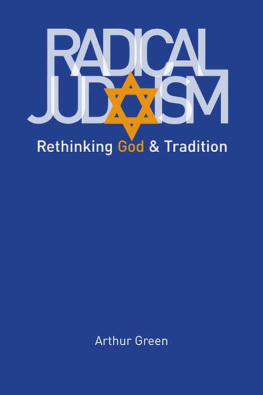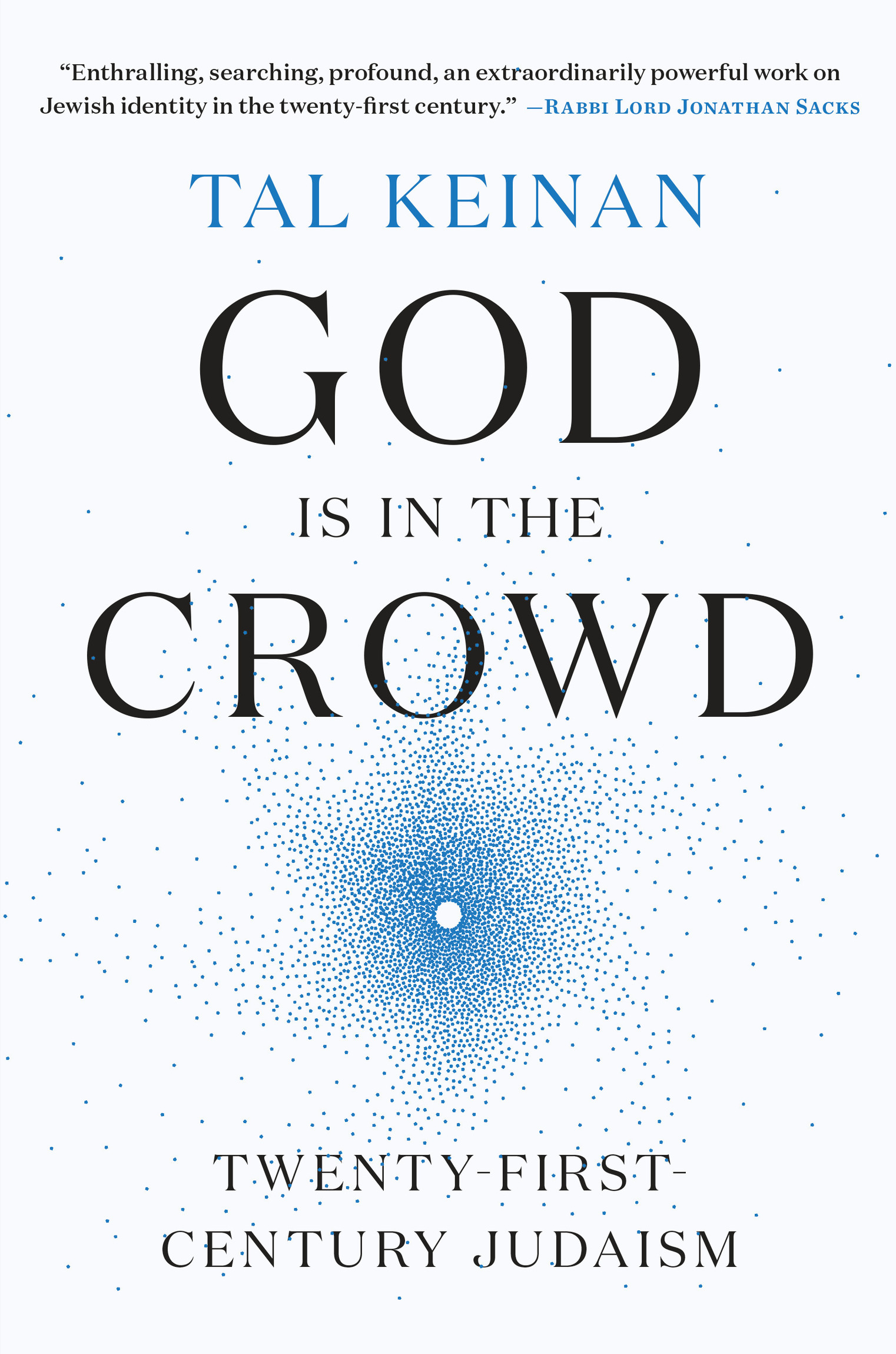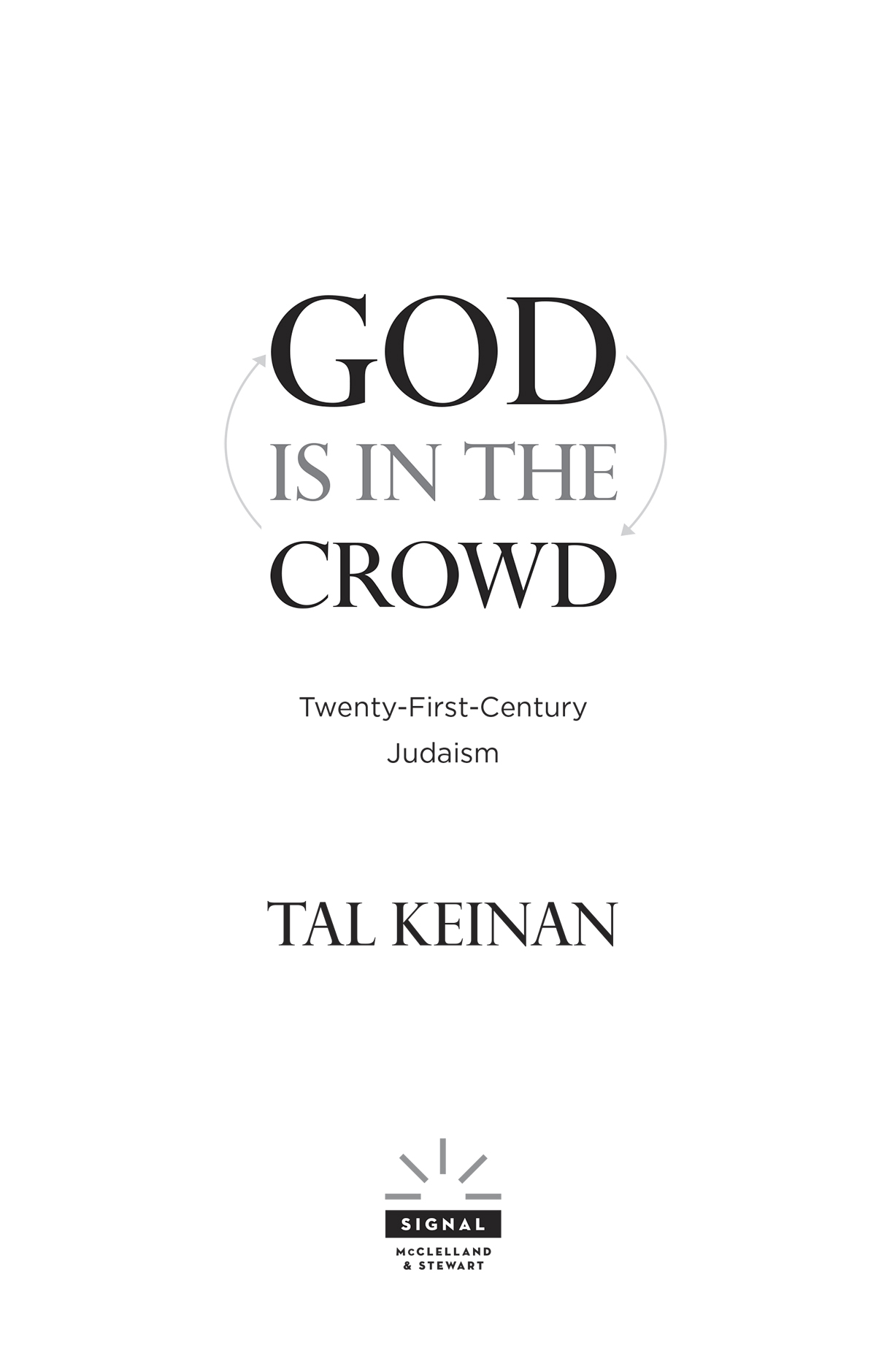As of the time of initial publication, the URLs displayed in this book link or refer to existing websites on the Internet. Penguin Random House Canada Limited is not responsible for, and should not be deemed to endorse or recommend, any website other than its own or any content available on the Internet (including without limitation at any website, blog page, information page) that is not created by Penguin Random House.
Copyright 2018 by Tal Keinan
Hardcover edition published 2018
Signal and colophon are registered trademarks of
Penguin Random House Canada Limited
All rights reserved. The use of any part of this publication reproduced, transmitted in any form or by any means, electronic, mechanical, photocopying, recording, or otherwise, or stored in a retrieval system, without the prior written consent of the publisher or, in case of photocopying or other reprographic copying, a licence from the Canadian Copyright Licensing Agency is an infringement of the copyright law.
Published simultaneously in the United States of America by Spiegel & Grau, an imprint of Random House, a division of Penguin Random House LLC, New York.
Library and Archives Canada Cataloguing in Publication
Keinan, Tal, author
God is in the crowd / Tal Keinan.
Includes bibliographical references and index.
Issued in print and electronic formats.
ISBN 9780771048401 (hardcover).ISBN 9780771048418 (EPUB)
1. Keinan, Tal. 2. JewsIdentity. 3. JewsCivilization. 4. Judaism21st century. 5. Judaism and stateIsrael. I. Title.
DS143.K43 2018 305.8924 C2018-900574-2
C2018-900575-0
Book design by Susan Turner
Cover art: Jeffrey Wiener, Dangerous Media
Published by Signal,
an imprint of McClelland & Stewart,
a division of Penguin Random House Canada Limited,
a Penguin Random House Company
www.penguinrandomhouse.ca

v5.3.2
ep
Contents
PROLOGUE
This book first took form as a diary. I used it to record my ambivalent thoughts on affiliation with a tribe, the Jews. I was born with membership but, in my early years, did not accept it as anything more than an option I would be unlikely to redeem. I was American. My interest in Judaism was, ironically, sparked by a Protestant minister at a New England prep school. It was not religion I was seeking. It was belonging. My parents had divorced when I was a child. I had changed schools every year or two since then. I wanted a home, and I discovered one in Judaism.
Membership in the Jewish tribe became the obsession that animated the most important, and the most reckless, decision of my young life. I moved to Israel and committed to an eight-year stint in the Israeli Air Force. I was nineteen years old and still knew very little about the membership I had claimed. The intensity of my military service left almost no time for contemplating Judaism. It was only toward the end of that service that I again began to question the specific value of membership in the Jewish People.
My relationship with Judaism has become more thoughtful in adulthood. I have been supported by teachers from the worlds of Jewish theology, Israeli politics, and American Jewish activism, and by some who have nothing to do with Jewish affairs. Most of my postAir Force professional life has been at Clarity, an asset management firm. I have shuttled between Claritys offices in the United States and Israel, the two countries that currently account for almost 90 percent of the worlds Jews. I have the privilege of living in both. My Jewish associates at Clarity have hailed from six continents and have represented most of the spectrum of Jewish affiliation, including Reform, Conservative, and Modern Orthodox Judaism. Years of intimate intellectual engagement with my colleagues, in matters ranging from Jewish history to mathematics, have provided a framework for the prescriptive thinking behind God Is in the Crowd.
I wrote this book having read much of the existing literature on Jewish Peoplehood. I would consider it a great success if it inspired readers to seek a diversity of views on Jewish identity, and to examine alternative prescriptions for Jewish continuity. I hope for the book to open a personal window through which greater numbers of Jews, affiliated and unaffiliated, might be able to contemplate the value of their Judaism, to themselves as individuals, to their communities, and to humanity as a whole. I hope for the book to inspire these people to claim a role in defining this value, an act that does not require years of Jewish scholarship.
A common Hebrew proverb loosely translates as It is the new guest who sees the homes faults. As I was spared the indoctrination implicit in much of structured Jewish education, my own approach to the home of Judaism was originally that of a guest. The questions I pose here emerge directly from my personal Jewish journey. My prognosis for the Jewish future is grim. The severity of that prognosis drives the aggressiveness of my prescription, a remedy that some have perceived as radical. The ideas behind God Is in the Crowd have already framed a debate within a small group of Jewish and non-Jewish thinkers. My ambition for the book is to draw a critical mass of the world Jewish community into this debate. I believe that only through the engagement of this critical mass, a population I describe as the Crowd, will the Jewish People claim control of its destiny.
Many of God Is in the Crowds early readers are Jewish leaders who have invested tremendous energy and immense financial resources in Jewish continuity. Organizations such as the Jewish Agency, and initiatives such as Birthright Israel, have shaped the course of recent Jewish history. But the Jewish reality continues to evolve. If we fail to recognize this evolution and adapt our approach, we will look back on these efforts one day and realize that they only bought us more time. If the Jewish People is to survive, in Israel, in the United States, and in the remnants of Diaspora, Judaism must reclaim its relevance to the individual by reestablishing its spiritual value. It must reclaim its relevance to the community by finding common cause among a critical mass of its individual adherents. This can happen only through the continued evolution of Jewish thought and practice. In an era of seemingly limitless personal options, our choice as a community is stark: Create meaning in Judaism or accept extinction.
PART
ONE
| Should There Be Jews? |
1
False Peaks
I awoke to the smell of ammonia. I was on my feet, but couldnt remember where. It was quiet and dark. I exhaled instinctively, to expel the fumes burning my throat, and held my breath for as long as I could. When the air rushed back in, the wet burlap hood fastened around my neck pressed against my cracked lips. I tasted urine, and the reality began flooding back. I was hunched low, in an underground cell, my shaved head scraping through the burlap against a jagged stone ceiling. My wrists were bound behind me with a thin cable. A metal rod wedged between my arms and my back, its ends grating inside grooves in the walls, prevented me from turning. I was barefoot, confined to one spot on a floor embedded with studs. I could straighten either my back or my legs, but not both. The silence around me was periodically pierced by a heavy water drop striking the floor somewhere outside my cell, its impact echoing against distant walls. During the interludes, the pulse throbbed in my ears. My feet were swollen. I slid my soles along the wet stone in search of a smooth spot, but the studs were positioned too densely.


